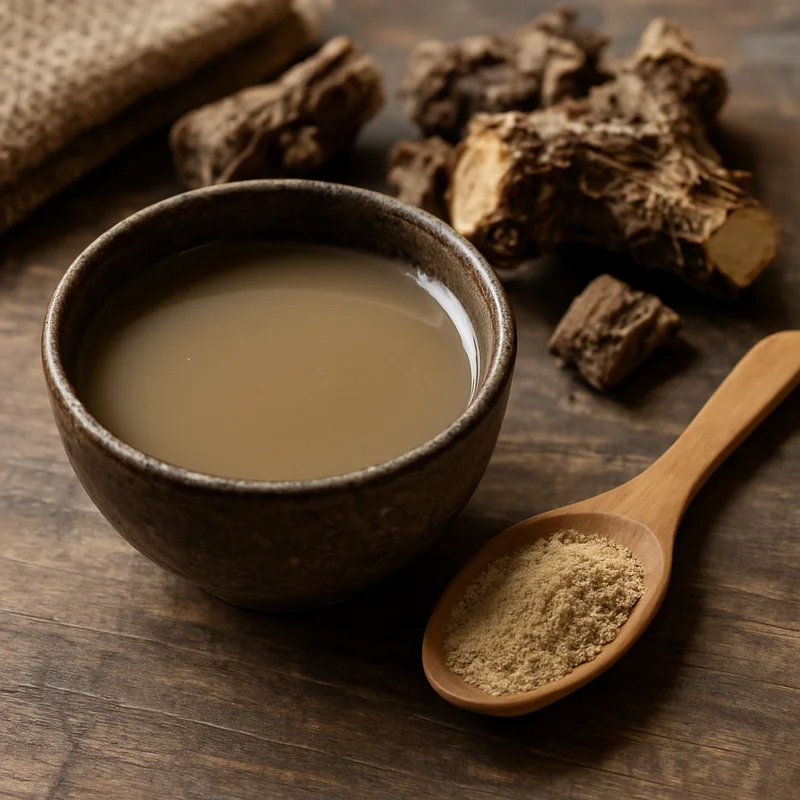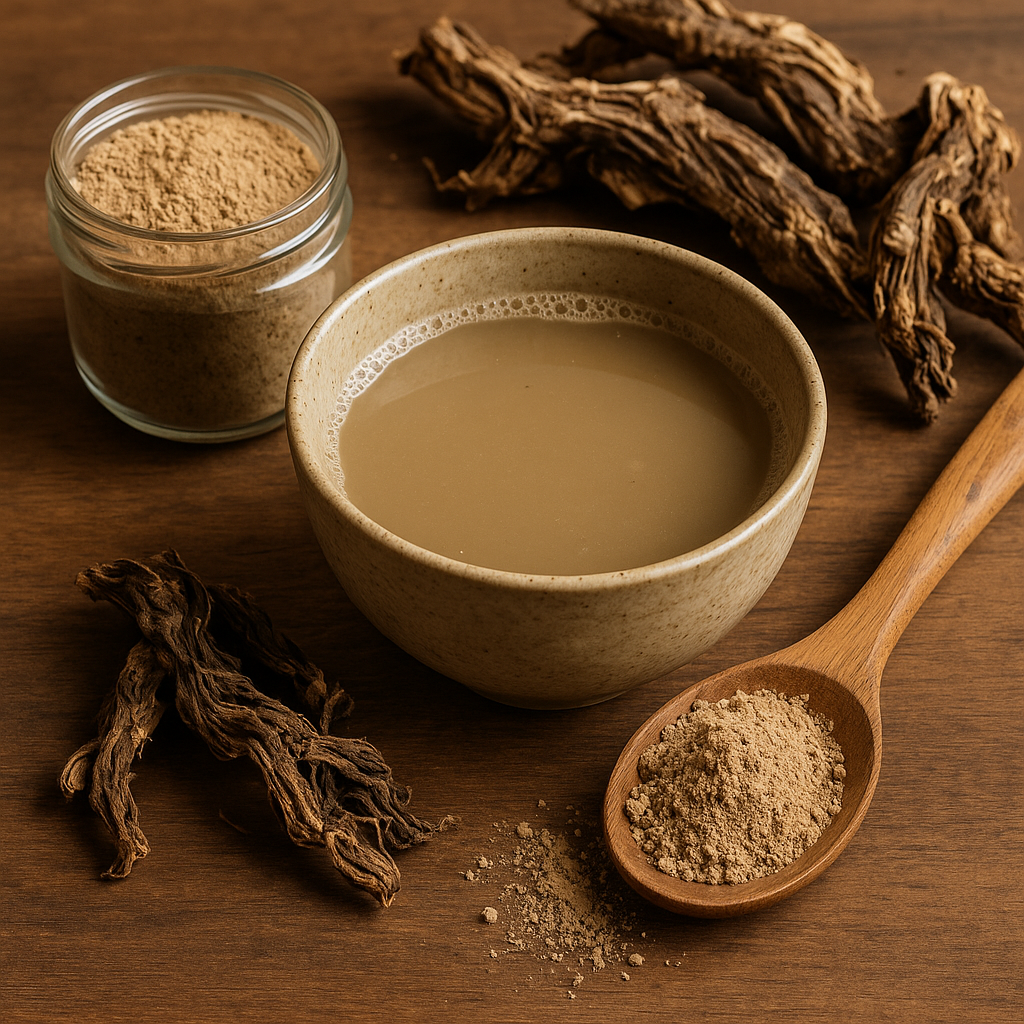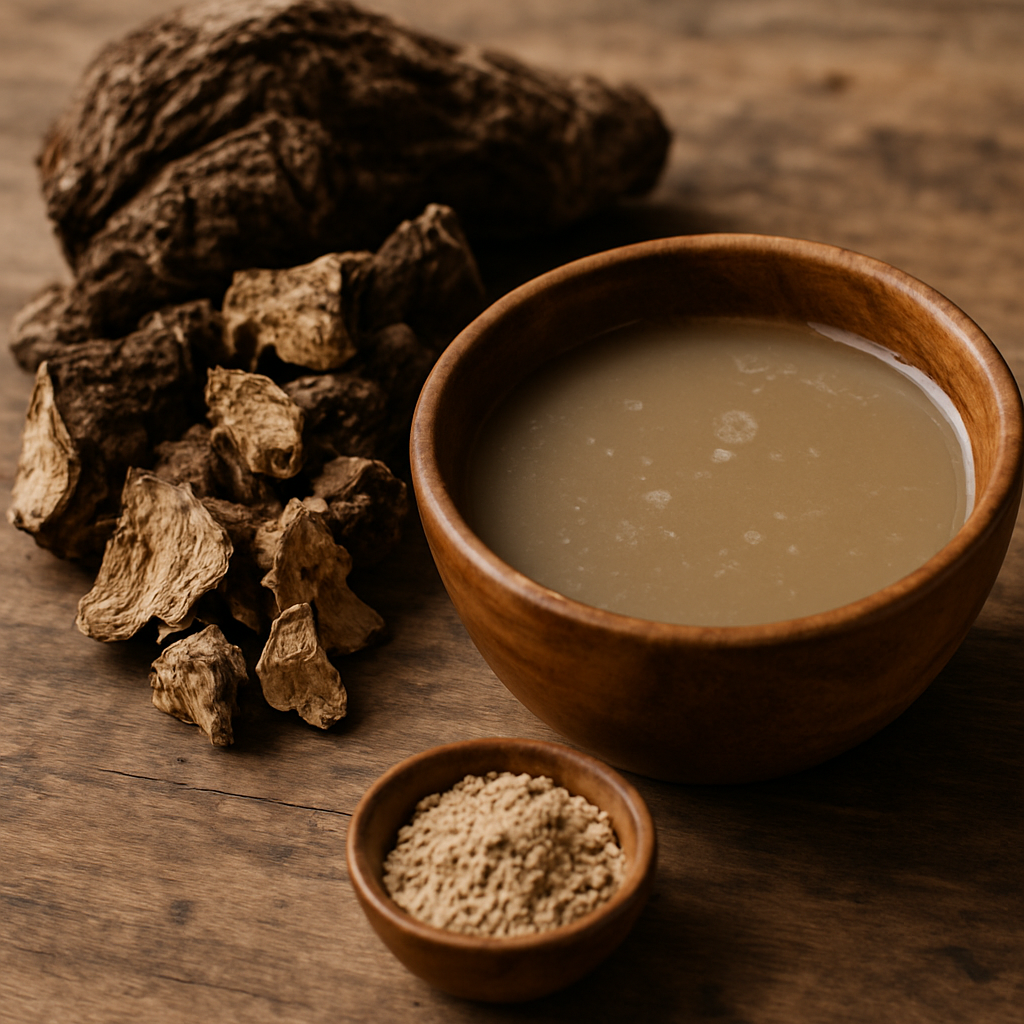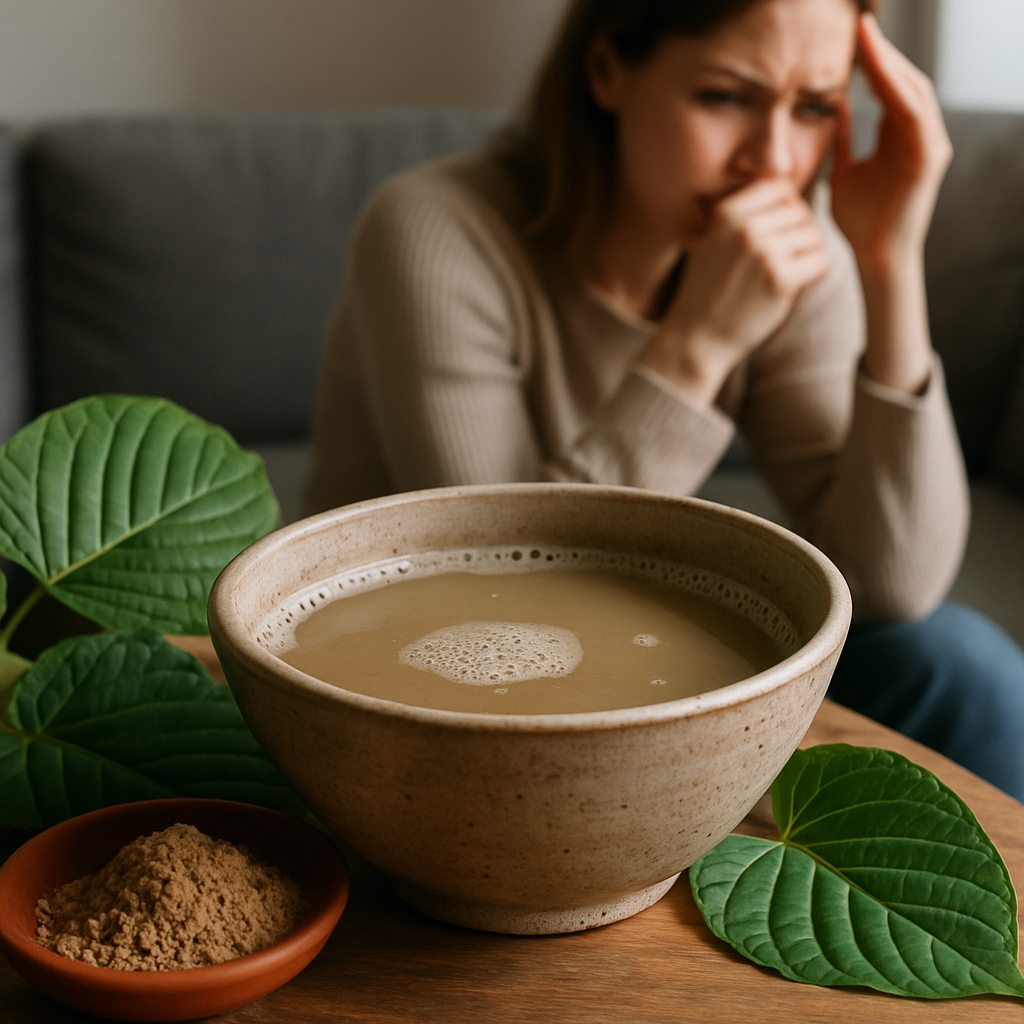Ask Ayurvedic doctor a question and get a consultation online on the problem of your concern in a free or paid mode. More than 2,000 experienced doctors work and wait for your questions on our site and help users to solve their health problems every day.
What Is Kava? Benefits, Effects & How to Use It

So... what is kava, really? The name pops up now and then — especially if you’ve ever Googled natural remedies for stress or stumbled into wellness forums full of herbal aficionados. But for all the buzz, a lot of people still don’t know what kava actually is. And no, it’s not a trendy new fruit or some obscure mushroom blend.
Kava, or Piper methysticum, is a root. It comes from the South Pacific, and traditionally, island cultures have used it to chill out — socially, ceremonially, and even spiritually. People would grind up the root, mix it with water, and drink it in communal settings. It’s not alcohol, but it feels a bit like it in the body. Sort of. We'll get to that.
In recent years, the Western world has caught on, mostly because of the kava benefits people swear by: less anxiety, better sleep, a calm mind. If you’re exploring holistic or Ayurvedic approaches, or you're just tired of feeling wired and fried, learning how to use kava could be surprisingly helpful. But there’s nuance — you’ve got to understand the kava effects, the right forms, and yes, the kava side effects too.
Let’s get into it.

What Is Kava?
Kava meaning and origin
The word kava literally means “bitter” in many Polynesian languages — which makes sense once you taste the stuff. Traditional kava drinks have a gritty, earthy flavor that’s... well, an acquired taste. But flavor aside, kava root has a deep cultural significance. In Vanuatu, Fiji, Tonga, and Hawaii, it’s been used for centuries in ceremonies that promote connection, storytelling, and inner stillness.
From an herbalist’s point of view, the “magic” in kava comes from compounds called kavalactones. These active constituents interact with the brain’s GABA receptors — kind of like how anti-anxiety meds work, but with a plant twist.
How it works in the body
Okay, so let’s talk mechanics. When you consume kava — especially in potent forms like kava tea or concentrated kava supplements — the kavalactones get to work. They don’t just dull you out. They seem to selectively reduce tension, promote muscle relaxation, and bring on a gentle euphoria.
Kava for anxiety is where it gets most attention. Some studies have shown it can be as effective as certain pharmaceuticals — minus the grogginess and dependence issues. And yes, kava for sleep is another big reason people turn to it. It’s not a sedative in the way sleeping pills are, but many find it helps them wind down, fall asleep faster, or stop ruminating at night.
That said, it’s not instantaneous. Effects can vary depending on your body chemistry, the preparation method, and how much you're taking. It’s not a magic bullet, but more like a reliable friend who says, “Hey, slow down. Let’s breathe.”

Benefits of Kava
Alright, let’s get into the good stuff. Why are people so into kava lately? And do the benefits actually hold up?
There’s a lot of noise online — influencers sipping kava tea on their yoga mats, supplement brands throwing around words like “natural calm” and “plant-powered chill.” But beneath the hype, there’s something worth paying attention to. Kava’s not just a trend. The benefits can be real, especially if you're dealing with stress, sleep issues, or just the general mental buzz that never seems to shut up.
Stress and anxiety reduction
Let’s be honest — modern life is kind of a pressure cooker. Emails, deadlines, doomscrolling, trying to meditate while your brain replays that one awkward conversation from last week. It’s a lot.
This is where kava for anxiety really shines. People report that after a cup of kava tea or a low-dose kava supplement, the edges of stress soften. It’s not a knockout effect like Valium — more like your nervous system takes a deep exhale. You’re still you, just… a less reactive version.
And this isn’t just anecdotal. Clinical trials (yes, actual peer-reviewed stuff) have found that kava extract can reduce symptoms of generalized anxiety disorder. It works by boosting GABA activity in the brain — the same calming neurotransmitter targeted by many anti-anxiety meds. The difference? Kava doesn’t seem to create dependency in the same way.
That said, it’s not a miracle cure. If your anxiety is chronic or severe, talk to someone. Kava can help — it’s not a substitute for therapy or real support.
Better sleep and calmness
Now let’s talk about kava for sleep — which honestly might be one of its best use cases. If you’re the type who gets stuck in your head at bedtime, this root could be a game changer. It doesn’t sedate you like a heavy sleep aid. Instead, it eases the transition. Your mind stops spinning, your body lets go.
Some people drink kava tea as part of a wind-down ritual — sort of like a more serious version of chamomile. Others use kava capsules or tinctures, especially if they’re trying to avoid sugar or don’t like the taste.
The calmness it brings is different than a “high.” You won’t feel spaced out (unless you overdo it). It’s more like your brain finally stops scrolling and lets the screen go black.
Interestingly, in traditional Pacific Island cultures, kava isn’t just for night-time. It’s used in the daytime, too — especially during social gatherings or stressful negotiations. So if you’re looking for a mid-day de-stress alternative that won’t leave you foggy, kava might be worth exploring.

How to Use Kava Safely
Of course, not all kava is created equal. And yeah, you can definitely mess it up. So let’s look at how to use it smartly.
Kava tea and extracts
First off, kava tea is probably the gentlest intro. You can find it in natural food stores or make your own using ground kava root. The taste is, um, earthy. Think muddy almond water. But it’s mellowing.
If you want something stronger, kava extracts or supplements come in capsules, tinctures, or even paste. Just make sure they’re made from noble kava — not “tudei” varieties, which can be harsher on the liver (more on that soon).
Dosage and precautions
Okay, real talk — kava is powerful. It’s not something you want to throw into your smoothie without thinking.
So how much is safe? For most adults, 250 to 300 mg of kavalactones per day is considered a moderate dose. That’s usually what you’ll find in reputable kava supplements. But everyone’s different. Start low, go slow. See how your body responds. And definitely don’t mix it with alcohol or other substances that depress the central nervous system — not unless you enjoy liver roulette.
Also, check the label. Some products are made from stems and leaves (bad idea). You want noble kava root, ideally water-extracted, which preserves the calming benefits without harsh solvents or chemical residues.
And if you’re pregnant, nursing, or dealing with liver issues — kava’s probably not for you. Talk to a real human doctor.
Ayurvedic View on Kava
Let’s zoom out a little.
From an Ayurvedic lens, kava is a curious plant. It’s not traditionally part of Ayurvedic medicine — it’s from a different part of the world. But if we try to fit it into the dosha model, it makes a surprising kind of sense.
Balance of mind and nerves
Kava’s cooling, grounding nature makes it ideal for excess Vata — you know, the restless, scattered, can’t-turn-your-brain-off type. If your mind feels like it’s constantly running a to-do list in 14 tabs, kava could help settle that air-and-ether energy.
It’s also useful for calming Pitta rage — that fiery impatience and pressure that builds under deadlines or arguments. Not always, but sometimes. In small doses.
Kava isn’t a long-term balancing herb, though. It’s more of a situational ally. Great for the acute moments when you need support — a rough day, a sleepless night, a social setting that triggers your nerves.
Alternative calming herbs
That said, kava isn’t the only show in town.
If you’re Ayurvedically inclined (or just plant-curious), try pairing or rotating kava with herbs like:
-
Ashwagandha – great for adrenal fatigue and long-term stress
-
Brahmi (Gotu kola) – supports cognitive clarity and calm
-
Chamomile – a mild classic, safe for most people
-
Tulsi (Holy Basil) – calming with a spiritual edge
Different herbs for different needs. Kava’s a sharper tool — don’t overuse it.
Side Effects and Warnings
So, about those warnings. Yeah, kava isn’t without controversy.
When to avoid kava
Some people just don’t react well to it. Drowsiness, nausea, a weird numbing mouth feeling (that one’s actually normal). If you notice headaches, digestive issues, or just feel off — stop. No herb is perfect for everyone.
And absolutely avoid if you’re on anti-anxiety meds, sleeping pills, or have liver problems. Which brings us to…
Kava and liver health
This is the big red flag.
Kava got a bad rap in the early 2000s when some cases of liver toxicity emerged. It wasn’t totally fair — most of those involved poor-quality extracts or people taking ridiculous doses. Still, it’s a valid concern. Use only high-quality kava root (no stems/leaves), and don’t overdo it.
Cycle off now and then. And again: no alcohol + kava. Ever.
Conclusion
Kava is not some trendy fix-all. But it can be a powerful tool — especially if you're navigating stress, anxiety, or just need to slow the mental scroll for a while.
Start with small doses. Find your rhythm. And if you’re serious about integrating it into your wellness path, consider chatting with an Ayurvedic practitioner who understands both traditional and modern plant uses.
FAQs
Is kava safe to use daily?
Not ideally. It’s best to use it a few times a week and cycle off. Long-term daily use can strain the liver.
What does kava feel like?
Like a gentle melt. Muscles relax, mind quiets, but you stay present — unless you take too much.
Can kava help with anxiety?
Yes, especially mild to moderate anxiety. It works similarly to anti-anxiety meds but naturally. Still, check with a healthcare provider if symptoms persist.
Are there any natural alternatives to kava?
Absolutely — ashwagandha, chamomile, tulsi, and passionflower are solid calming options, depending on your needs.

